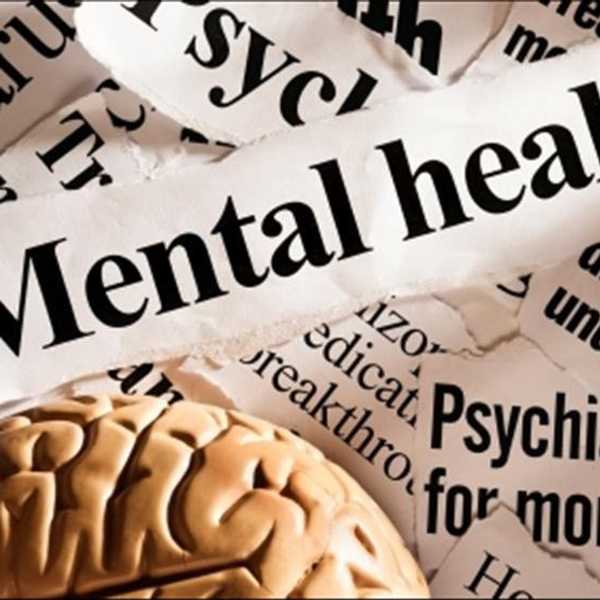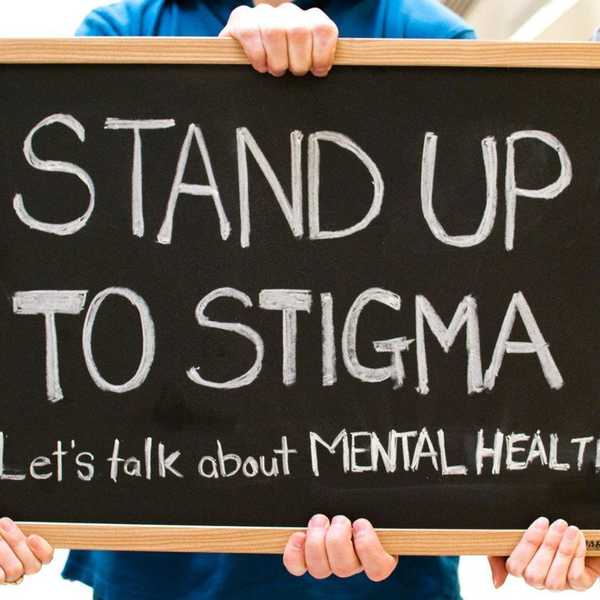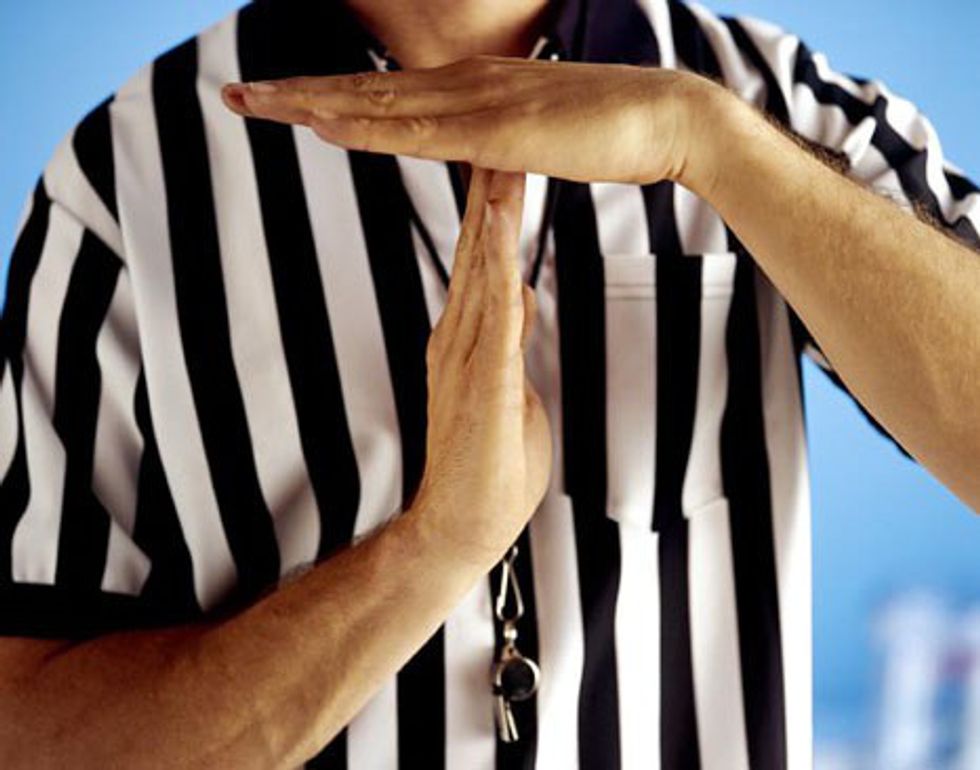I'm a mental health nurse. And, believe me, I've gotten plenty of interesting reactions when people hear that. Some want to tell me their life story. Some want to instantly ask my advice on their "crazy" cousin. Some demand to know what the wildest thing I've seen is. And then there's the, "Well, I couldn't do it!"
That last one, I'd believe is true, actually. This is a field that's not for everyone. Even some well-meaning folk just don't have the right temperament or knowledge base to do it. And that's okay. The truth is, there are areas of nursing I wouldn't be very good at. No shame in that game - find your niche. And, for as tough as it can be, I do genuinely love this work.
Here's my confession, though. I get really frustrated sometimes when I browse the Internet and see all the misinformation out there. Venting is fine and good, and by all means, share negative experiences with particular providers so that people can make the best choices for themselves. But there is a growing sentiment I've seen that those in the mental health field are "only there for the freakshow," "have no idea what it's like," "only in it for the money," or - my personal favorite - "ableist by default." All actual quotes I've seen. Some of them, I'm not even sure what the OP meant, honestly. So many times, I have to remind myself to take a deep breath and click that little back arrow on my browser.
And, while it's true that there are a lot of trolls out there on the Web, I think a lot of people genuinely don't understand what it's like to be on the other side of that nursing station. I'm applying this list to inpatient mental health, since that's where I work, but a few of them do apply to the outpatient field as well.
1. We know you don't want to be here.
(Note - I chose this picture for the emotion and the cute child; I'm not attempting to compare my patients with toddlers. Though I do work primarily with children and teens.)
Almost no one wants to be admitted to a mental health facility. Even those who come in voluntarily are usually doing it because they know they need the help. We know, when you're being admitted, it's probably the worst day of your life. True, there may be a sense of relief in finally getting help, in knowing you're in a safe place, but it does require giving up control. No one's going to be mad at you for insisting you don't want to be there. And, for those admitted involuntarily, we're even more understanding of that. But, if you are admitted involuntarily, you are considered an immediate danger to yourself or others, or you are so sick that you don't realize how badly you need help. There are strict legal criteria for involuntary admissions. We don't do it for kicks. We can sympathize with your frustration and anger, but please forgive us for not agreeing with every, "I don't need to be here." Sometimes advocating for you means getting you the help you need rather than agreeing with everything you say.
2. We're not the fun police.
As you might imagine, dealing with everyone else's problems all day can be stressful. Most of us cope through humor. I understand paranoia and social anxiety deeply (something I'll address more in depth in a later point), so I know how easy it can be to assume two people you hear laughing are laughing at you. The truth is, it probably has nothing to do with you. On my floor, it's probably a silly meme one of us found about current events. And, while we do have a lot of restrictions that are put in place for safety on the unit, the staff members usually enjoy fun activities just as much as the patients do. We just have to make sure it's something everyone can enjoy safely. And, while different programs may vary, patient suggestions often do factor into the recreational activities that get chosen. Don't be afraid to suggest a group topic or an activity. Just, please, be understanding that while something may be safe for you, that might not hold true for everyone, and we're not at liberty to tell you everyone's stories to explain why sometimes.
3. Don't be afraid to ask for a break when you need one.
(Pictured - a referee making the "time-out" signal with their hands)
Yes, we do strongly encourage group attendance and participation in unit activities. You are being kept safe simply by virtue of being admitted, but we want you to be an active participant in your own care. Sitting in your room all day, isolating, can often compound the feelings that brought you into the hospital in the first place. Plus, group sessions - and individual time with social workers and doctors - are designed to give you new information and a set of coping skills you can leave the hospital with. We understand relapses, especially since mental health disorders are usually chronic. There's no shame in having to come back. But, like with any medical condition - the brain, after all, is an organ that can suffer from disease like any other - we hope you won't have to return.
That having been said, we understand that the environment (often called the "milieu") can be overwhelming sometimes, especially for those with sensory issues. People can be loud. Lights can be harsh. Sometimes you are too overwhelmed to interact with people, even those in a similar situation. And, if that's the case, don't be afraid to ask staff if you can sit a group out, or take some time in a quiet room.
4. We're human
(Pictured, a woman looking a little sad and overwhelmed.)
As I mentioned before, the job can be stressful. And part of it is dealing with people who are very vulnerable and often lash out. (The number of times I've been called Nurse Ratched...and that's pretty mild, given what I'm used to.) We're trained not to take things personally. We're trained to allow ourselves to be called horrible things by angry people and still smile and provide the best service possible. Honestly, most of us know it isn't about us. It's about what's going on in that person's head. At the same time, though, it can grate on a person. And while we're also trained to leave our outside lives at the door, it's easier said than done. It's possible for us to have a bad day and get an attitude with a patient. Is it right or professional? No. But it does happen.
If it does, though, we're usually aware of it and we feel bad. Please don't be afraid to ask a staff member to step aside for a moment and let them know you were upset by them. If you can do it in a non-confrontational manner, they're often receptive. "I" statements work well here - for example, "I felt like you were really impatient with me earlier, and I was hurt by that. Can we discuss this?" Obviously, use the exact wording that works for you. And, yes, I'll tell the dirty secret - some people shouldn't be in this field. It's like every job in that respect. If you're intimidated by someone, try going to another staff member to see if they can mediate. Or call the patient advocate - every hospital has one, and you can ask someone on staff you trust for the number.
5. We often understand better than you know.
You know that old joke from infomercials, "I'm not only the president, I'm also a client"? That's actually true (well, not the president part) of many of us in the mental health field. A lot of us got into it because we do have our own mental health issues that we've learned how to manage and we want to help others. It's not a requirement - a caring, educated neurotypical person can be a perfectly good provider - but it does help with the empathy piece. We won't tell you about our own issues, except in vague terms. It's not appropriate to make things about us - and, again, if there's a staff member that does this consistently, that's another good situation to ask for a supervisor or the patient advocate. I've suffered with depression and anxiety - and, yes, some days are definitely better than others. So do many of my coworkers. And we know being called out on manipulative behaviors isn't fun, but sometimes it's necessary to move on and find a better place. Just as we know that, sometimes, medication is necessary - and that there shouldn't be any stigma associated with it. Diabetics often take insulin and those with chemical imbalances in the brain often need medication for that.
Obviously, this list doesn't begin to cover everything. But hopefully, I could help give you a look at the point of view of the nurse or mental health counselor you're interacting with. And if you're interested in joining us, I encourage you to look into it! You might be exactly the person we need on our team.


























